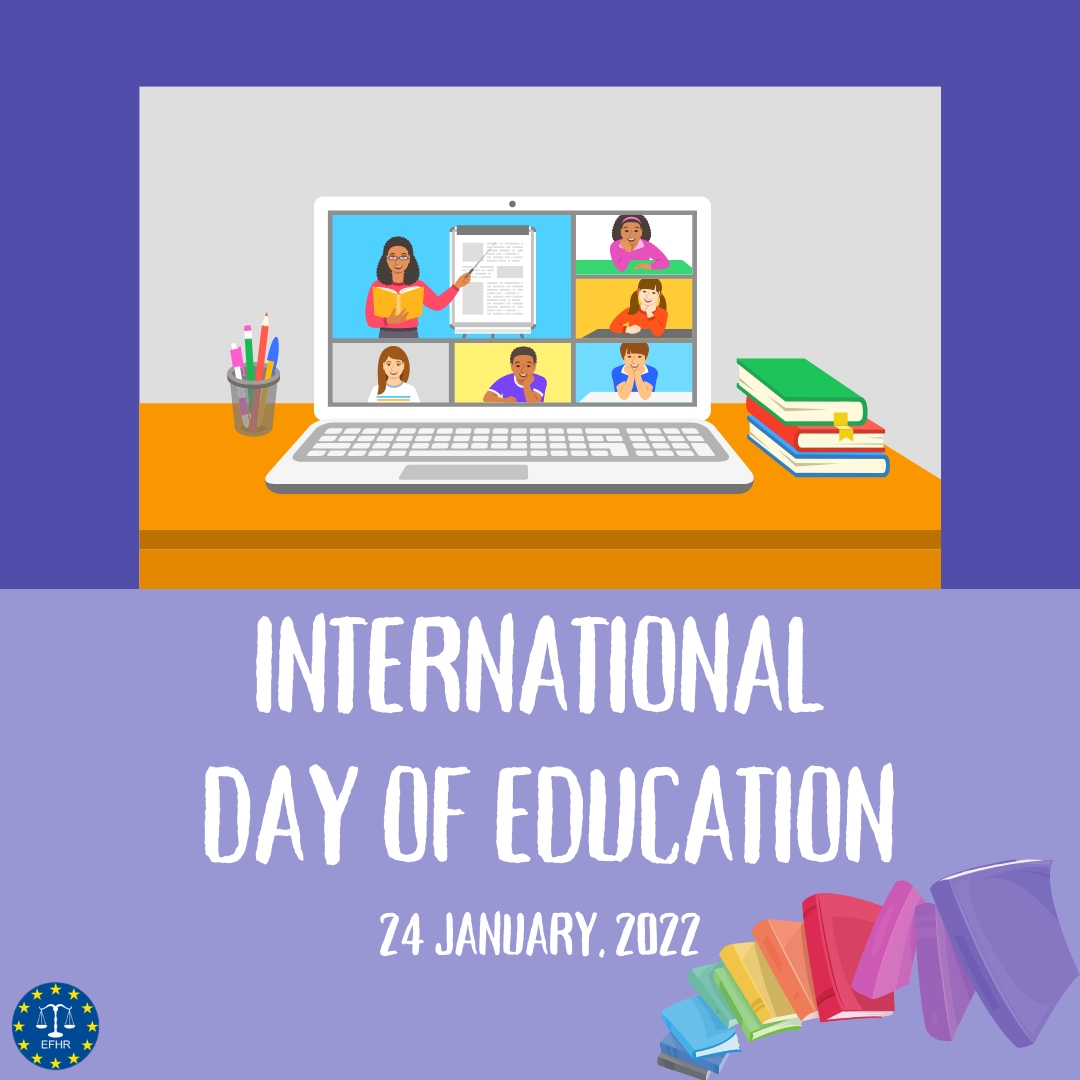- 2022/01/24
International Education Day invites us to reflect on the importance of ensuring access to education and training in our society

General Assembly of United Nations declared January 24th the International Education Day.
The need to create this day stems from the fact that having adequate education for all leads to a more aware society, which in turn, benefits the elimination of societal disadvantages. Knowledge is also one of the greatest assets a person can have, both mentally and materially. Many children all over the world live in poverty, and learning would enable them to escape.
To give you some figures, which may stimulate your own reflection, there are about 258 million children and adolescents in the world who cannot finish, or even attend, school. Moreover, there are 617 million children who cannot read, or who have never had a math or history class.
The report on the state of education in the world compiled by the World Bank in December 2020 revealed that after the pandemic, the number of children deprived of the opportunity to receive an education increased dramatically: “Out of 720 million children of primary school age, educational poverty affects 382 million children, (120 million more than in 2019)”.
The right to education is enshrined in Article 26 of the Universal Declaration of Human Rights, which stipulates the right to free and compulsory primary education.
The Convention on the Rights of the Child, adopted in 1989, states that countries should also make higher education accessible to all.
In Europe we can say that we are sensitive to this issue; public and private institutions are working towards a better education for young people.
The European Commission is taking this work forward by planning to build European Education Area by 2025. It will allow all young people to receive a better education, training, and create a sense of belonging.
The Sustainable Development Goal of the UN Agenda 2030, agreed in September 2015, specifies in No. 4 to “ensure inclusive and equitable quality education and promote lifelong learning opportunities for all” by 2030. The goal is ambitious, given that we are already in 2022, but certainly laudable, and hopefully achievable.
The European Union is considered a world leader at providing education to children in emergency situations, for example in a humanitarian crisis. It is also committed to ensuring that all children have an education, which is a shield against radicalisation, and a chance to live a normal life despite difficult circumstances. We should certainly be proud of this.
Many of us are lucky enough to live in countries where going to school is a normality. It is everyone’s right, and for some, it could be almost tiring.
Some parents find it hard to make sure that their children are studying well, or that they have done all their homework. It is certainly very challenging after a day’s work but take care of this too.
On those days, however, remember how fortunate we all are to have the opportunity to study.
We have only had this right for a few decades. Not all our grandparents were able to study, and neither did many of our parents. Above all, we must always remember that just a few kilometres away, in countries that can be reached by a few hours’ flight, many do not have this right.
So tonight, on this very important day, when you get home from work, take five minutes of your time to remind your children how lucky they are. They must protect this right of theirs, and make sure that more and more people have it, even if it is a chore sometimes.
On this very important day we should also spare a thought for teachers – to thank them for all they do for us. Teachers are those who give us the tools to cope with life, who nourish students with knowledge, who give them the opportunity to be curious and ignite their passion. Without the teaching profession none of this would be possible.
I wish we can all appreciate, today and every day of the year, how lucky we are. It is also imperative to recognize that not everyone has our luck.
I hope that when we look at the percentages of illiteracy in a year, it will be a little lower, even if by a small margin. Then we will be sure that we are on the right track.
The article is written by Vittoria Hayun, a lawyer trainee from Florence, Italy.



